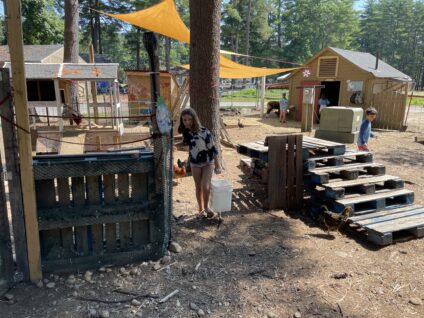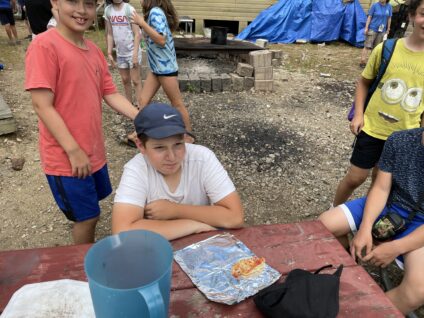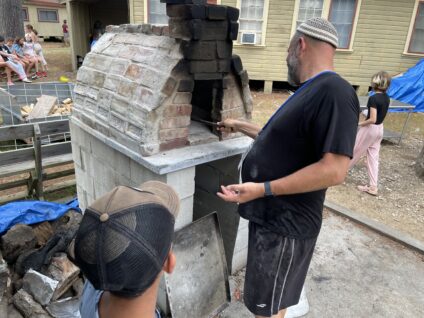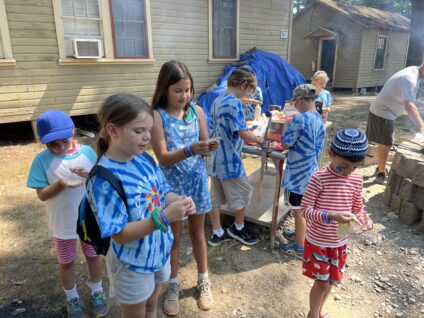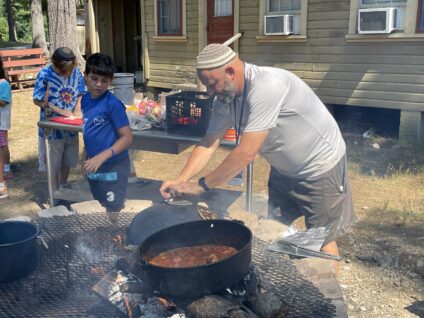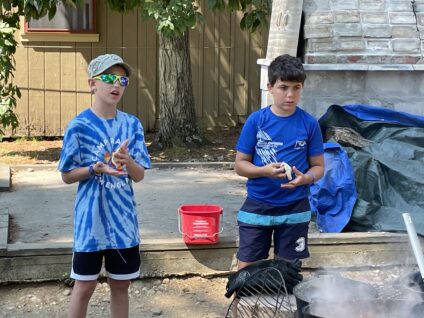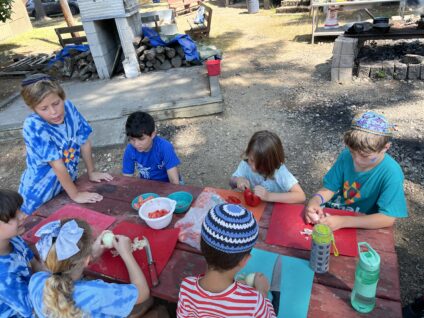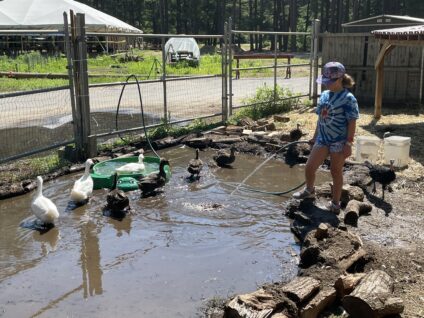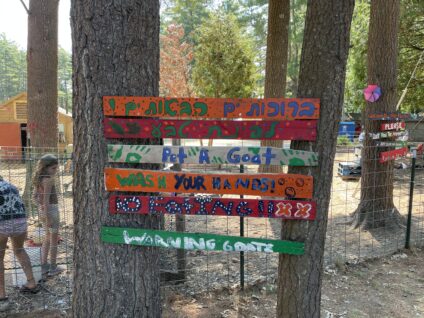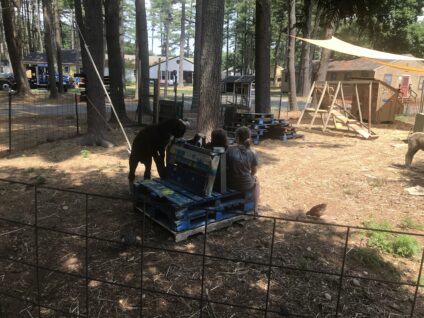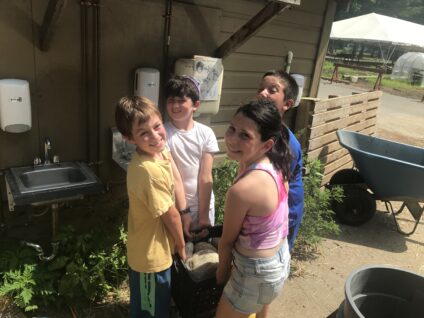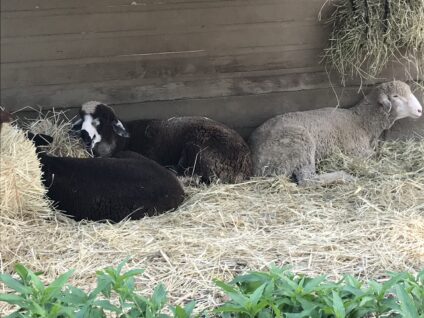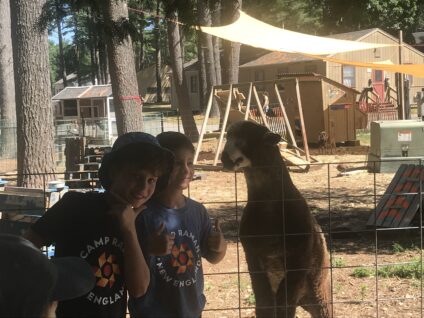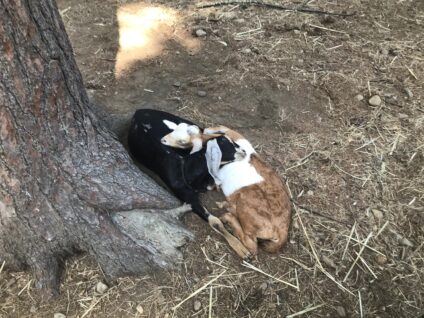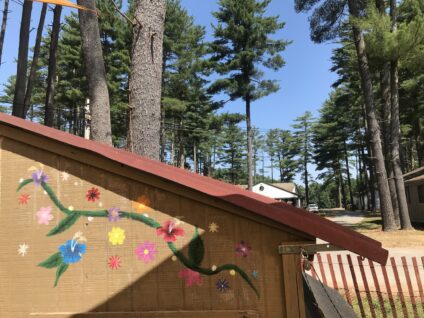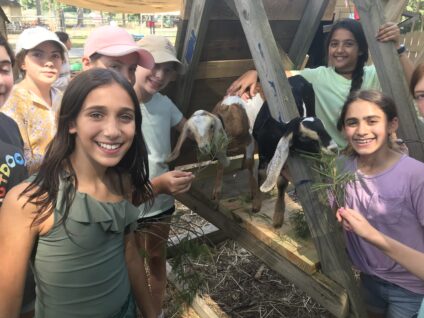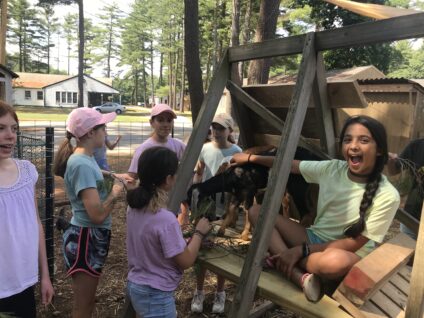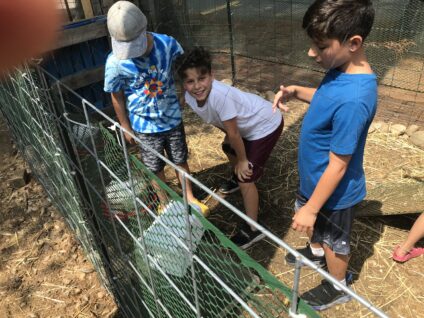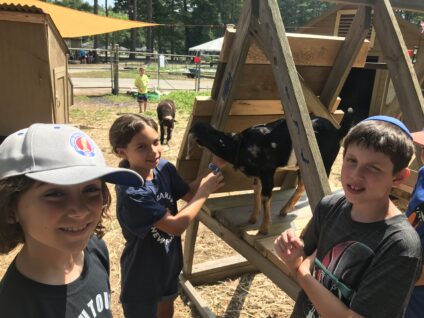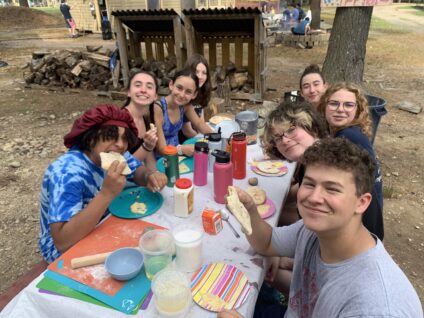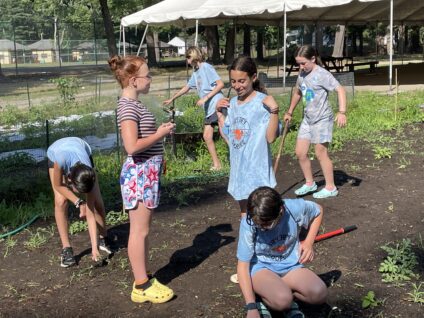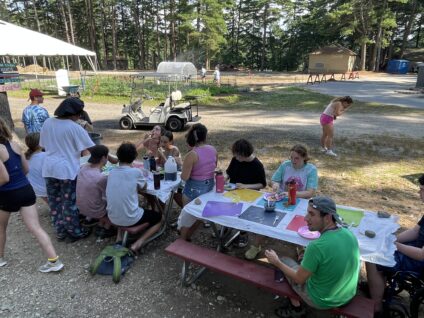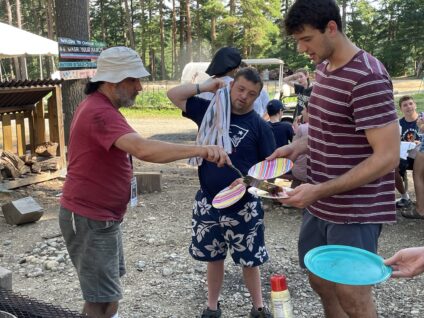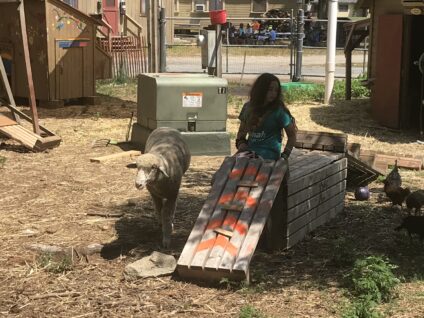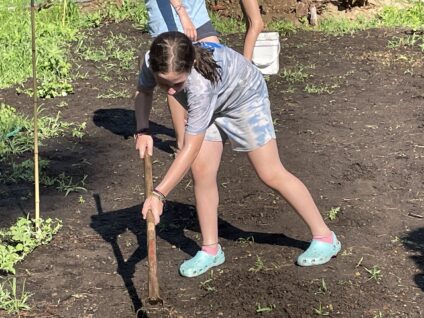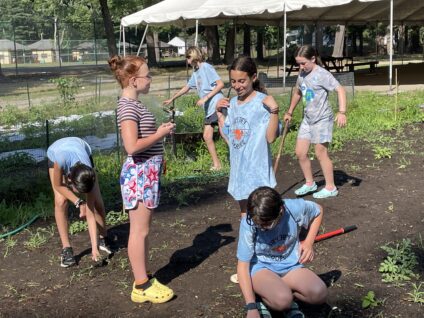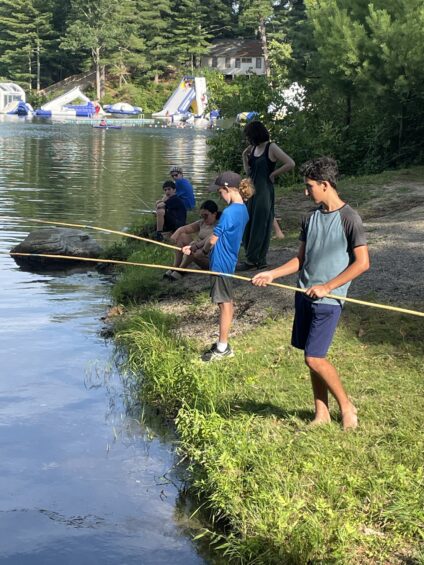Pinat Teva: Understanding Our Responsibility Toward Nature
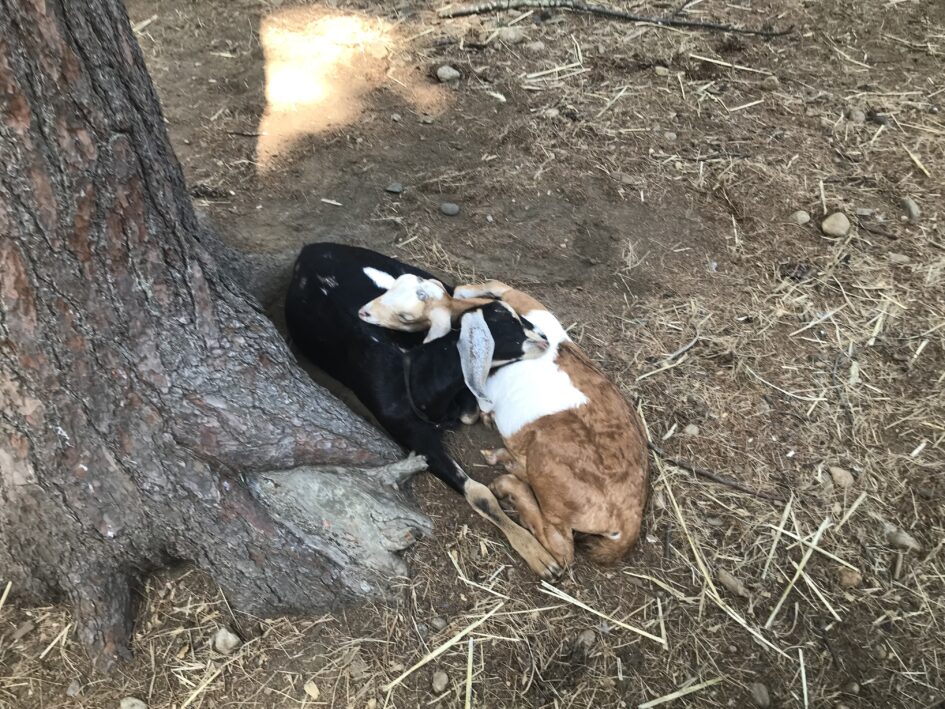
Our Pinat Teva (nature corner), made up of the Pinat Chai (animal corner), a large lush garden, and multiple outdoor cooking areas, continues to be a place of delight for our chanichim (campers). The Pinat Teva encourages campers to develop an understanding of their responsibility, as Jews, toward nature. From teaching the value of kindness toward animals to understanding where our food comes from, the Pinat Teva is a place where chanichim can deepen their understanding of nature, and also have fun!
Our Pinat Teva instructors and several chanichim provide a few glimpses into the Pinat Teva experience:
Pinat Chai (Animal Corner):
The Pinat Chai gives our chanichim opportunities to be responsible for the care of our animals and for the barnyard. Each day we do chores and work on ways to make our barnyard more comfortable for our animals. We learn that these animals are not show pieces or pets – and that we need to let them lead the way to show us how to provide thoughtful and responsible care. When problems arise – for example, our sheep struggling to stay dry during rainstorms – our campers brainstorm solutions (an elevated floor made with shipping pallets for instance) and are given the chance to safely execute them. In recent weeks, a large pond was established for the ducks.
We also teach the chanichim about ecology and the environment and about the roles of wild and farm animals. In addition to working in the animal yard, we take nature walks, go fishing and just enjoy hanging out with the animals and in nature.
– David Green and Royi Zidon
Outdoor Cooking:
When bounding into the Outdoor Cooking area, the chanichim always ask: “What are we making today??!!” The answer is anything from shakshuka to pizza and pita to banana boats! We try to teach them the science of food and the science of cooking with a heat source that is less controlled. We want them to understand where the ingredients come from and how they came to be part of the cuisine of the United States and of Israel. Because the campers work together and are engaged in making the food themselves, they develop positive associations with the outdoors, with camp, and with Judaism – and are willing to try unfamiliar foods.
The chanichim are always ready to slice, dice and stir our ingredients. Even in the heat of the day, they want to tend the fire, flip the pancakes and wash the dishes.
– Rabbi Mike Werbow and Rabbi Andy Katz
Garden:
In the Garden, we work to put your campers in touch with nature. We drink tea from plentiful herbs that we grow ourselves (iced on hot days). Each day, campers choose from a variety of activities in the garden. Early in the summer, we built a greenhouse and aquaponic and hydroponic systems. Throughout the summer, the chanichim have started, watered and weeded the plants in the garden and watermelon patch, and have made artwork to enhance the garden. Recently, they have begun to enjoy the garden’s bounty: this summer’s first cucumbers and zucchini. We cook using our garden-grown plants and wild plants – such as blueberries for pancakes – that we find around camp.
– Barak Laness and Nechama Malkiel
Here’s what some of the chanichim have to say about their time in Pinat Teva:
- I like Outdoor Cooking because it’s in the fresh air and I get to eat. But it’s hard to cut the onions tiny because of all the layers. – Sage
- I love the experience of making something yummy and trying something I haven’t eaten before. – Yonah
- We always make tea, and it’s fun to help something grow really big. – Dahlia
- I love that we use the resources from camp – the plants and the eggs – to make food that is so delicious. – Gila
